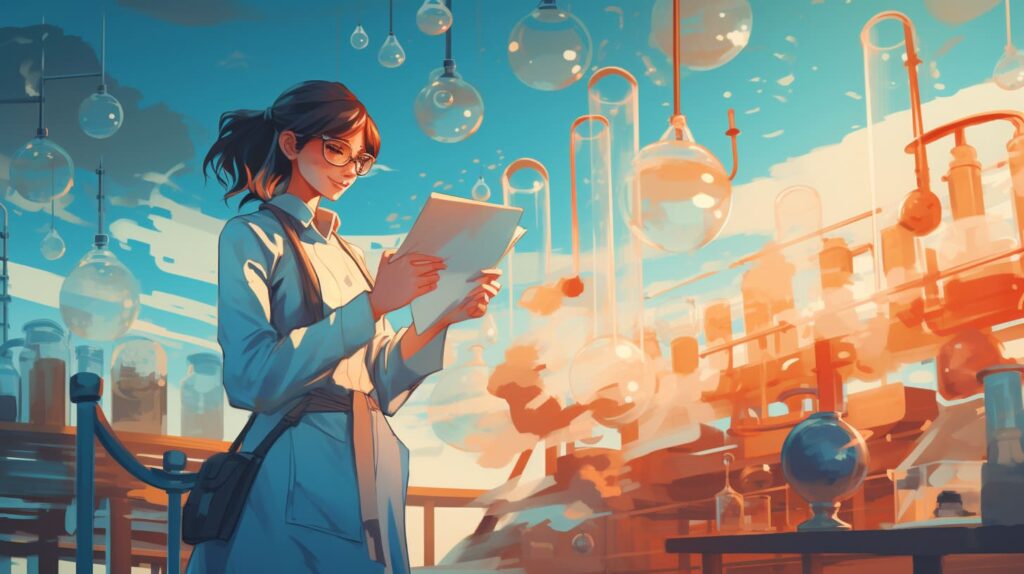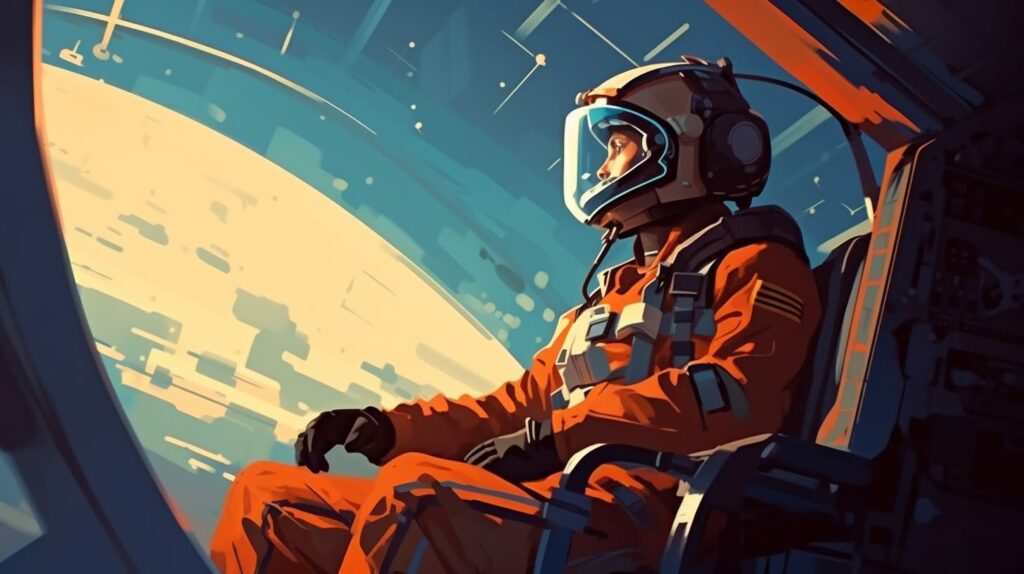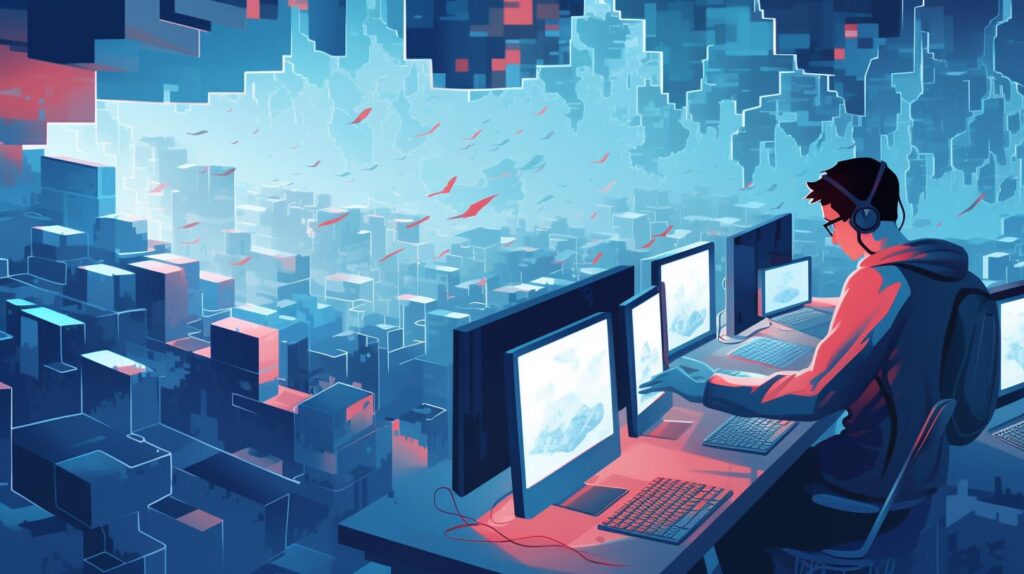The world of work is in flux. With technological advancements and societal shifts, new careers are sprouting while others fade away. As we navigate this shifting landscape, one thing is clear: staying informed about emerging fields is not just a luxury—it’s a necessity. Let’s explore emerging careers of tomorrow, from the green revolution to the vast realms of the metaverse.
Table of Contents
1. The Green Revolution: Careers in Renewable Energy
The shifting global consciousness towards sustainability is more than a trend—it’s a necessary pivot. As the scars of climate change become increasingly evident, the move towards renewable energy is strategic and imperative. With countries setting ambitious targets to reduce carbon footprints, the renewable energy sector is booming, teeming with diverse opportunities for those passionate about making a difference. For those keen on participating in this revolution, various specialized roles await, each with its challenges and rewards.

- Solar Engineer: The sun, a colossal energy powerhouse, beams down untapped potential every day. Solar engineers play a pivotal role in capturing this, innovating with advancements in photovoltaic technology. They are at the forefront of designing, implementing, and maintaining solar infrastructures, ensuring maximum efficiency.
- Wind Energy Technician: Wind farms, with their majestic turbines stretching towards the skies, are becoming a common sight. But behind their serene facade lies intricate machinery. Wind energy technicians are the guardians of these turbines, ensuring they operate optimally, transforming gusts of wind into sustainable energy for our cities.
- Energy Storage Specialist: Renewable energy, while abundant, is also intermittent. The sun doesn’t always shine; the wind doesn’t always blow. Energy storage specialists are the problem solvers of this equation, devising innovative methods to store energy for times when nature is less cooperative. Their expertise ensures a consistent energy supply, irrespective of natural fluctuations.
- Bioenergy Professional: Beyond the sun and wind, there’s potential energy in organic materials—be it plant-based biomass or agricultural waste. Professionals in bioenergy explore, produce, and optimize energy from these organic sources, contributing to a more circular economy.
- Hydroelectric System Engineer: Water, with its flowing might, holds kinetic energy. Hydroelectric system engineers design and monitor dams and other hydraulic structures, tapping into the energy of flowing water and converting it into electricity. Their work not only lights up homes but also aids in water management and conservation.
- Geothermal Scientist: Beneath our feet, the Earth’s core radiates heat. Geothermal scientists delve deep, studying the Earth’s subsurface heat and its potential. By harnessing geothermal energy, they offer a solution that’s both sustainable and less reliant on external factors.
As the world accelerates towards a greener future, the canvas of opportunities in the renewable energy sector continues to expand. Each role is a testament to human ingenuity, striving to reconcile with nature and ensuring a brighter, sustainable future for future generations.
2. Digital Realities: Jobs in the Metaverse
The metaverse, a term that once conjured images of distant futures and imaginative universes, is no longer a distant dream—it’s blossoming right before us. This evolving digital universe is a testament to human creativity and technological innovation convergence. As boundaries blur between real and virtual, the job market within the metaverse is booming, opening doors to professions that were once considered the stuff of fiction.

- Virtual Reality Architects: In a realm where anything is possible, these visionary architects craft intricate digital landscapes, cities, and experiences, ensuring that every corner of the metaverse is as immersive as it is captivating.
- Digital Real Estate Agents: The demand for prime digital locations—be it for business, entertainment, or residence—is surging. These specialized agents navigate this virtual property market, negotiating deals that can sometimes rival those in the physical world in terms of value.
- Avatar Designers: The avatars we choose become extensions of ourselves in the digital domain. These designers collaborate with users to tailor avatars that capture personality, style, and even emotion, ensuring everyone has a unique presence in the metaverse.
- Virtual Event Coordinators: From concerts to conferences, events in the metaverse demand a new set of organizational skills. These coordinators ensure that virtual gatherings are as engaging, glitch-free, and memorable as their real-world counterparts.
- Digital Fashion Creators: In a space where traditional physical limitations don’t apply, fashion takes on a whole new dimension. These creators design digital apparel, accessories, and even transformative wearables, setting trends in a world where the only limit is imagination.
- Virtual Economists: The metaverse has its own economic dynamics. Specialists in this field study and shape the financial underpinnings of virtual worlds, from currency systems to market behaviors.
By stepping into these burgeoning careers, professionals aren’t just securing a job; they’re becoming pioneers on the frontier of the digital revolution.
3. Biotech Frontiers: Pioneering Health Innovations
In the nexus of science, technology, and medicine lies the dynamic field of biotechnology. As we delve deeper into the microscopic intricacies of life, the horizons of what’s possible expand exponentially. The fusion of computer science, genetics, and cellular studies has led to breakthroughs once considered the stuff of science fiction. Whether it’s about personalizing medical treatments or reconceptualizing our food systems, the biotech sector holds answers to some of humanity’s most pressing questions and challenges.

- Genetic Counselor: In a world where genetic testing becomes increasingly accessible, Genetic Counselors play a pivotal role. They help individuals and families understand and navigate the implications of genetic discoveries, offering guidance on everything from health risks to potential treatment pathways.
- Bioinformatics Scientist: As we gather immense amounts of biological data, there’s a growing need for experts who can make sense of it all. Bioinformatics Scientists sit at the intersection of biology and data science, sifting through genetic sequences to unearth patterns, insights, and avenues for novel treatments.
- Cellular Agriculturist: The global demand for food, especially meat, poses significant environmental and ethical challenges. Cellular Agriculturists are at the forefront of finding sustainable solutions. By developing techniques to cultivate meat and other food products in labs, they’re crafting a future where we can enjoy our favorite dishes without the environmental footprint or ethical dilemmas associated with traditional livestock farming.
- Regenerative Medicine Specialist: As we gain deeper insights into the body’s capacity for healing, these specialists focus on developing treatments that stimulate tissue and organ regeneration. From stem cell therapies to 3D-printed organs, they’re redefining the boundaries of medical science.
- Neuroprosthetics Engineer: In the quest to merge man and machine, these professionals design and refine prosthetics that not only replace lost limbs but can also interface directly with the wearer’s nervous system, offering improved functionality and a more natural user experience.
- Nutrigenomics Researcher: Diet and nutrition have always been cornerstones of health. But what if we could tailor our diets based on our genetic makeup? These researchers dive into the interplay between genes, nutrition, and health, paving the way for personalized nutrition plans that optimize well-being.
4. Space Odyssey: The New Age of Aerospace Careers
As humankind stands on the precipice of exploring realms once relegated to dreams and fiction, the fascination with space takes on tangible form. Our collective obsession with the vast unknown of the universe, coupled with rapid technological advancements, is unlocking a galaxy of career opportunities. The aerospace industry, no longer limited to conventional roles, is expanding into interdisciplinary areas, beckoning professionals from varied domains to partake in the grand space odyssey.

- Space Habitat Designer: In the pursuit of making life beyond Earth possible, these professionals play a pivotal role. They merge the principles of architecture, engineering, and biology to design habitats that can withstand the harshness of space, ensuring that future astronauts or even settlers have safe, comfortable environments.
- Exoplanetary Scientist: Venturing beyond our solar neighborhood, these scientists focus on planets orbiting stars outside our solar system. Tasked with discovering and analyzing these distant worlds, their research might just point us to the next potential home or unlock secrets about the universe’s origins and diversity.
- Space Tour Guide: The dream of holidaying among the stars isn’t as distant as one might think. As commercial spaceflight becomes a reality, space tour guides will curate once-in-a-lifetime experiences for space tourists. Equipped with vast knowledge and training, they’ll introduce adventurers to celestial landmarks, narrate cosmic phenomena, and ensure safety amidst the awe.
- Astrobiologist: This fascinating career merges biology with the study of outer space. Astrobiologists seek to understand the origin, evolution, and possibility of life elsewhere in the universe. Their discoveries can not only answer the age-old question of “Are we alone?” but also shed light on life’s tenacity and adaptability.
- Space Traffic Controller: As the number of satellites, spacecraft, and space missions increase, managing traffic in Earth’s orbit and beyond becomes paramount. Space traffic controllers will monitor and coordinate the movements of these objects, ensuring safe passage and preventing potential collisions in space.
- Space Miner: With Earth’s resources depleting, asteroids and other celestial bodies become potential goldmines, quite literally. Rich in minerals and metals, these entities in space could be mined to support technological advancements, and space miners will be at the forefront of this extraction process.
5. Artificial Intelligence & Automation: Shaping the Future of Work
The intricate dance between artificial intelligence and automation is at the forefront of the modern work revolution. These technologies aren’t simply enhancing our productivity or replacing repetitive tasks—they’re carving out entirely new roles and disciplines. They touch everything from healthcare and finance to entertainment and education. For those passionate about merging human ingenuity with technological advancement, the AI and automation sectors present a plethora of opportunities to make a significant impact.

- AI Ethicist: In a world where machines increasingly make decisions, the ethical implications become paramount. AI Ethicists grapple with complex moral dilemmas, guiding the development and implementation of AI systems to ensure they respect human rights and operate without bias.
- Machine Learning Trainer: Just as a child learns from experiences, AI systems refine their knowledge through data and repeated interactions. Machine Learning Trainers play the crucial role of “educating” these systems, optimizing their learning processes, and ensuring their outputs align with human expectations.
- Robotics Maintenance Technician: As with any sophisticated piece of machinery, robots and automated systems need regular maintenance. These technicians are the unsung heroes ensuring the smooth operation of robots, diagnosing issues, and performing necessary repairs or updates.
- AI Product Manager: Tasked with steering the direction of AI-based products, these professionals bridge the gap between technical teams and business stakeholders, ensuring products meet market needs while maximizing the potential of AI.
- Data Annotation Specialist: Before AI can understand or interpret data, it often needs to be labeled or annotated. These specialists ensure the data fed into AI systems is clean, accurate, and categorized correctly, forming the foundation of efficient machine learning.
- Conversational AI Designer: With chatbots and virtual assistants becoming commonplace, there’s a need for professionals who can design these interactions to be fluid, human-like, and effective, ensuring users have a seamless experience.
6. Sustainability and the Circular Economy: Redefining Consumption
The linear model of “take, make, dispose” has been a cornerstone of our consumer society for decades. However, as our planet’s resources dwindle and the impacts of our consumption become starkly evident, there’s a growing recognition of the need for change. The circular economy emerges as a beacon of hope, emphasizing regeneration, restoration, and a shift away from wasteful practices. Within this transformative paradigm, a plethora of innovative career opportunities are arising that prioritize the planet’s well-being alongside economic growth. Professionals in this realm are reimagining the very fabric of how we produce, consume, and dispose.

- Sustainable Supply Chain Manager: In the vast web of global trade, these experts are the guardians of green practices. They ensure products are sourced, produced, and distributed with minimal environmental footprint, often integrating renewable resources and reducing waste at every step.
- Upcycling Designer: In a world accustomed to disposability, these designers champion creativity and longevity. By re-envisioning discarded or seemingly obsolete items, they breathe new life into what would otherwise be waste, crafting functional or artistic creations that tell a story of transformation.
- Ecosystem Restoration Specialist: With various ecosystems teetering on the brink of degradation, these specialists undertake the monumental task of healing. From reviving depleted soils to reintroducing native flora and fauna, they spearhead projects that mend the intricate tapestry of our natural world.
- Circular Economy Consultant: As businesses worldwide grapple with aligning their practices with sustainable principles, these consultants guide the transition. They advise firms on waste reduction, resource efficiency, and regenerative strategies, paving the way for a more circular corporate world.
- Green Materials Scientist: Pushing the boundaries of innovation, these scientists develop materials that are not only environmentally friendly but also recyclable or biodegradable. Their contributions often underpin the sustainable products of tomorrow.
7. Lifelong Learning: The Rise of EdTech and Remote Learning
The educational landscape is undergoing a metamorphosis. Traditional classroom boundaries are dissolving, replaced by a digital realm that offers flexibility and accessibility. The advent of EdTech and remote learning is not just a fleeting trend; it’s a powerful testament to the adaptability of education in the digital age. As more institutions and learners embrace this shift, a plethora of career opportunities have sprung forth, catering to this dynamic and ever-evolving domain.

- E-Learning Curriculum Developer: Crafting digital learning experiences requires a blend of pedagogy and technology. These developers not only create compelling online courses but also integrate multimedia elements like videos, interactive quizzes, and simulations to enrich the learning process.
- Virtual Classroom Facilitator: As traditional classes transition to virtual platforms, these professionals play a vital role. They are not only responsible for ensuring that students remain engaged, but they also troubleshoot technical issues, curate resources, and foster a collaborative online community.
- EdTech Product Manager: Behind every groundbreaking educational app or platform stands a visionary team. At its helm is the product manager, whose role is to ensure that the tool is not only functional but also intuitive and tailored to meet the diverse needs of its user base.
- Learning Analytics Specialist: With digital learning comes the power of data. These specialists analyze student performance metrics, course engagement rates, and feedback to offer insights. Their findings can shape curriculum improvements, personalized learning paths, and student support interventions.
- AR/VR Education Designer: Augmented and Virtual Reality is ushering in a new era of immersive learning. These designers conceptualize and develop AR/VR experiences that can take students on virtual field trips, simulate complex processes, or offer hands-on training in a controlled digital environment.
- Online Learning Community Manager: Just like in physical classrooms, building a sense of community is pivotal in virtual spaces. These managers foster interaction, curate discussion forums, and ensure that the ethos of collaborative learning thrives in the digital realm.
Final Thoughts on Exploring Emerging Careers
In conclusion, our future holds careers we’ve yet to imagine. But by keeping an ear to the ground and an eye on trends, we can prepare ourselves for the exciting opportunities that lie ahead. The next frontier of work is not just about earning a paycheck—it’s about pioneering uncharted territories.

